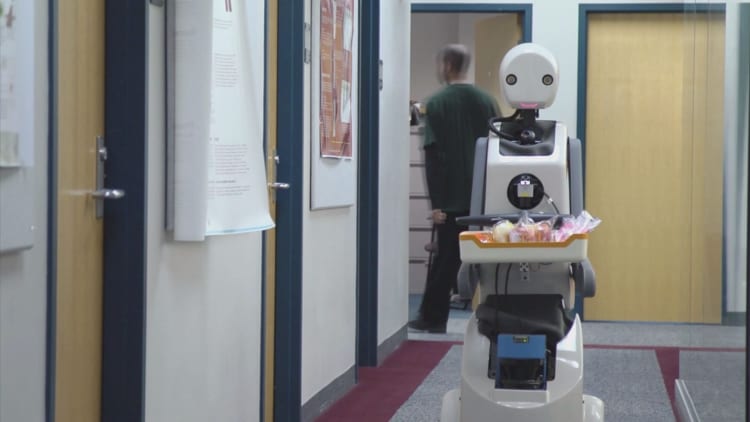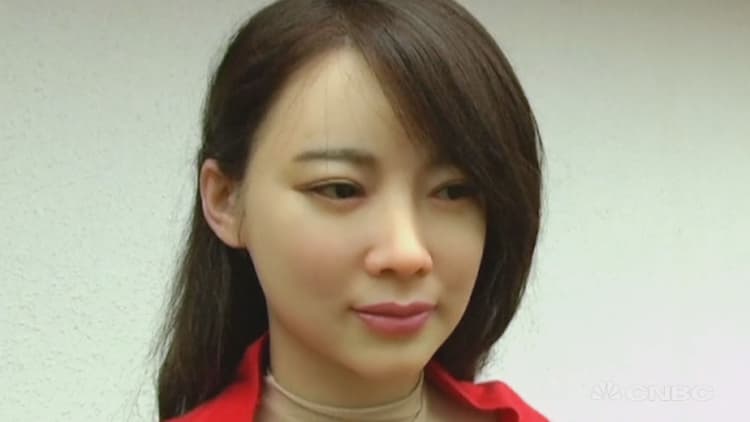
Mainland China's growing robotics sector has allegedly been overrun by domestic companies which have fraudulently obtained vast amounts of subsidies from various local governments, according to industry insiders.
"The industry is now in a subsidies-driven bubble," Wang Cairong, the executive director at the China Artificial Intelligence Robot Industry Alliance, told the South China Morning Post.
"It's time to launch a nationwide campaign to investigate these companies which have received subsidies through deceit or illicit connections."
The mainland has been the world's largest market for industrial robots since 2013 as its vast manufacturing industry increased automation on the factory floor.
Total sales of industrial robots in the country reached 66,000 units last year, up 16 per cent from 2014, according to estimates from the International Federation of Robotics.
Chinese regulators in April expressed their intention to infuse more capital into the mainland robotics industry under a proposed five-year plan.
These authorities have looked to robotics and automation, in general, as a way to overcome labor shortages and spur innovation amid China's slowing economy.
Various local governments at the provincial and city levels, however, had already launched their own policies on subsidies to prop up robotics industry players in their jurisdiction ahead of that proposal.
More from the South China Morning Post :
Alibaba under probe by US SEC over accounting practices as its shares tank almost 7 per cent
Breast cancer breakthrough: simple drug treatment may prevent most forms of disease
Xiaomi's new drone is as cheap as its smartphone
Those generous subsidies sparked a big boom in the domestic robotics sector. The number of robotics companies – including those that manufacture and service industrial robots, as well as provide automation integration solutions – have swelled to more than 3,400 from hundreds in the past few years, according to data from the Ministry of Industry and Information Technology.
"Many robotics companies obtained subsidies by claiming they have key technologies on par with those of foreign competitors," Wang said.
But the alliance, which is backed by state-run research institutions, has found production at certain domestic robotics firms would be hampered without imported core components.
"It has been an open secret within the industry that many Chinese robotics firms, including some companies that are listed, have cheated to obtain subsidies," Wang said. "Some have even formed several new companies to apply and receive one-off subsidies."
An industry source said local governments have been known to direct subsidies to state-owned enterprises in their area, especially those with guanxi or influential relationships which make deals possible.
Local governments, including those in developed provinces like Guangdong, Zhejiang and Jiangsu, each provide annual subsidies of several hundred million yuan to robotics companies, as well as tax deductions.
Zhao Yong, the chief executive at robotics industry news portal robotschina .com, has estimated that many companies in the industry either lost money or were barely profitable.
In a report by news portal eeo.com, Zhao said the amount of industrial robots sold on the mainland last year totalled about 14 billion yuan (HK$16.52 billion), 85 per cent of which were imported.

A rough estimate would show that thousands of Chinese robotics companies may have recorded, on average, annual sales of less than 100,000 yuan each.
Mainland media reported that low-end robots have been installed on the assembly line of known labour-intensive factories as a showcase for local government subsidies and left unused.
"There remains a big shortage of specialists who can assess the true situation in the country's robotics industry and determine arbitrary decision–making by local governments in granting subsidies," Wang said.
His urgent call for a sweeping audit of subsidies to the domestic robotics industry followed a recent nationwide investigation launched by the Ministry of Finance on so-called "new energy vehicle" makers.
The agency is targeting electric car manufacturers suspected of fraudulently obtaining subsidies from the government in 2013 and 2014, as well as those firms that applied last year.
According to mainland media, poor-quality electric cars have been made by certain manufacturers. These firms allegedly set up car rental agencies to buy all the cars produced in exchange for millions of yuan in subsidies. The cars, however, eventually ended up being dumped in warehouses.

